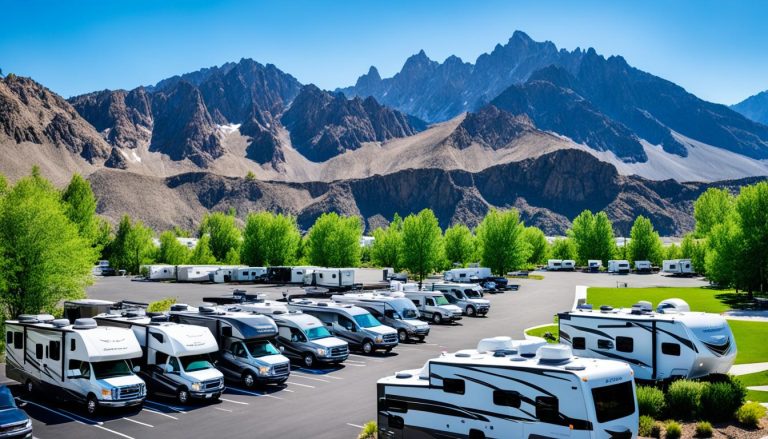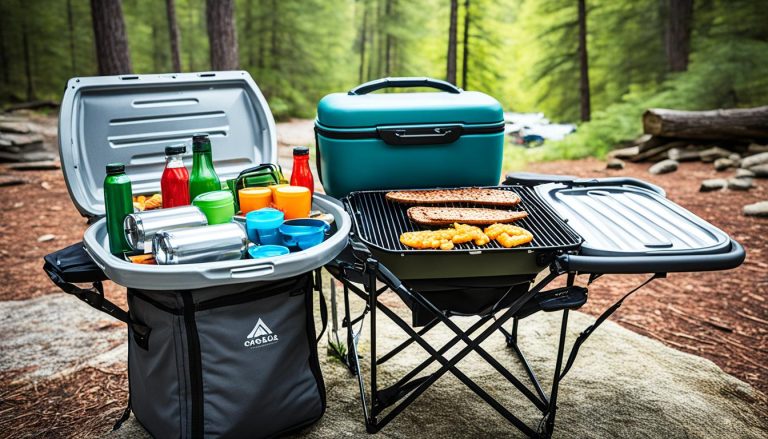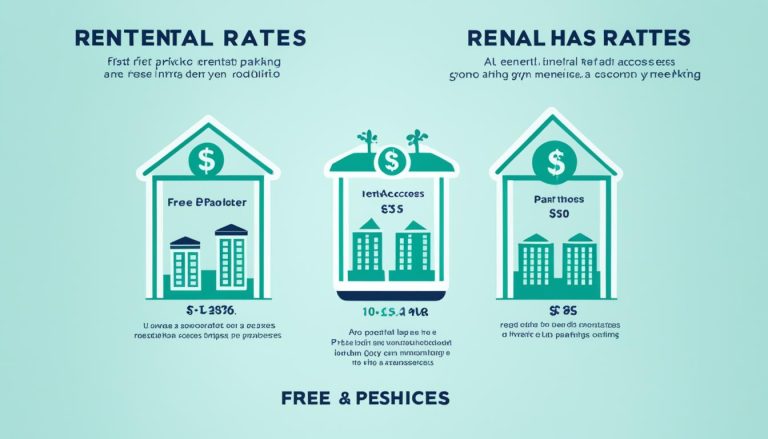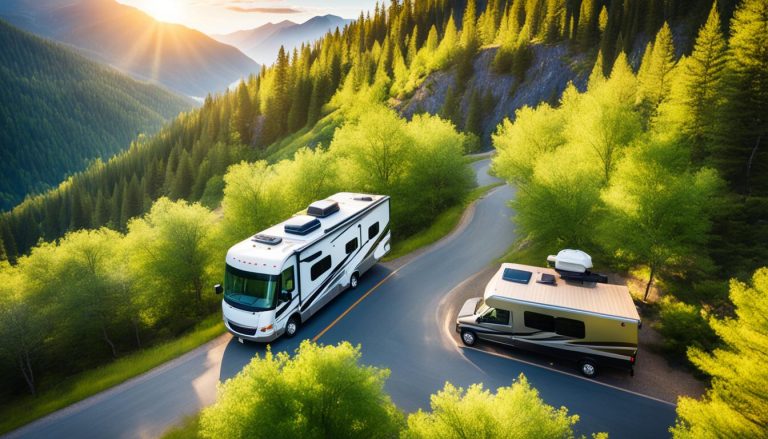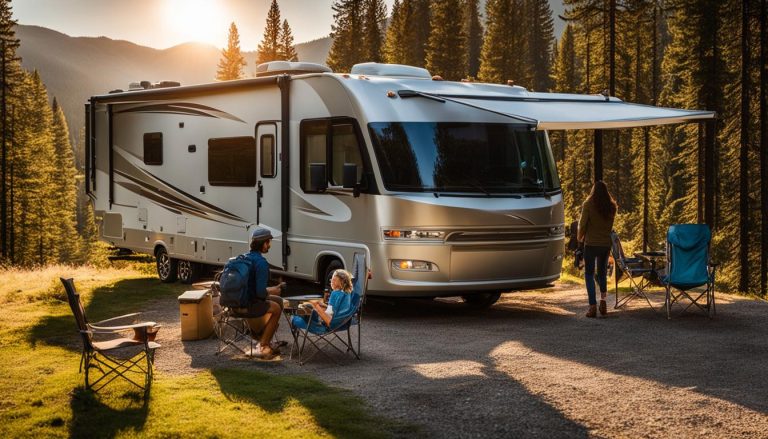Essential RV Rental Insurance Coverage Guide
gorvlifestyle.com and its partners may earn a commission if you purchase a product through one of our links
Embracing the open road with the freedom of a home on wheels is becoming the preferred choice for many adventurous travelers across the United States. The quest for discovery without the need to stick to a rigid hotel itinerary or the constraints of a cramped vehicle is driving a boom in recreational vehicle (RV) rentals. As hotel costs soar and the draw of a more nomadic lifestyle takes hold, renting an RV can be a tempting alternative. Yet, with this newfound freedom comes the responsibility of ensuring one is fully covered by the right RV rental insurance. The intricacies of recreational vehicle insurance, camper van insurance, and travel trailer insurance may add to the adventure’s logistical load, but the peace of mind it provides is invaluable.
Unlike renting a compact car where a simple auto policy often suffices, those renting motorhomes face a complex array of RV coverage options. It’s not just about the possibility of scrapes and dings but managing the potential financial implications of mishaps in something that doubles as both transport and accommodation. Motorhome insurance must be comprehensive, accommodating the unique aspects of RV living, from the vehicle itself to the lifestyle it supports. Securing a robust RV rental policy is not merely a box to be ticked, but a foundational aspect of trip planning that warrants attention and understanding.
With rental RV protection varying wildly in scope and price, insights into what constitutes a wise investment can save renters from unexpected costs that may arise from the nomadic lifestyle they seek to enjoy. As they navigate the myriad of camper insurance options, renters are urged to look beyond initial cost and consider what’s at stake should the unforeseen occur. Knowledge is power, and in the case of RV rental insurance, it’s the fuel for a journey that’s both safe and exhilarating.
Key Takeaways
- The complexity and cost of RV rental insurance highlight the need for thorough research before embarking on an RV adventure.
- Understanding the different facets of recreational vehicle insurance is crucial for securing adequate protection.
- Factors influencing motorhome insurance include the type and value of the RV, state requirements, and the renter’s driving history.
- Investing in comprehensive camper van insurance and travel trailer insurance can mitigate the financial risks associated with RV travel.
- Renters should examine RV coverage options beyond basic liability to include scenarios like fires or roadside accidents.
- Comparing RV rental policies and price points from different companies ensures better rental RV protection.
- Being well-informed about insurance options protects travelers from being underinsured or overpaying for unnecessary coverage.
Understanding RV Rental Insurance and Its Importance
Embarking on a scenic road trip using a recreational vehicle has become a favored way to explore the vast landscapes of the United States. But with the allure of wide-open spaces and star-lit skies comes the responsibility of securing adequate protection. RV rental insurance is not only mandatory in many states but also serves as a safety net, ensuring peace of mind for both the renter and rental company against unexpected events.
Comparative Costs of RV Rental Insurance vs. Traditional Auto Coverage
When comparing RV rental insurance to standard auto insurance, the cost gap becomes evident due to the inherent differences between these vehicles. The size, value, and complexity of RVs contribute to the overall increase in premium rates. The following table sheds light on the stark contrasts in costs associated with renting and insuring an RV compared to standard vehicles.
| Type of Vehicle | Average Daily Insurance Cost | Common Coverage Inclusions |
|---|---|---|
| Recreational Vehicle (RV) | $15 – $70 | Collision, Comprehensive, RV Coverage |
| Traditional Automobile | $7 – $25 | Liability, Comprehensive, Collision |
As illustrated, motorhome insurance and recreational vehicle insurance can significantly surpass the cost associated with the more familiar automobile policies.
Why Standard Car Insurance Policies Might Not Suffice
While standard auto coverage may seem like a practical choice, it often falls short in addressing the unique needs of an RV renter. Basic policies might meet state-required minimums, but they seldom encompass the full spectrum of risks an RV faces. For example, the financial implications of damaging a large, luxurious motorhome can quickly escalate beyond a typical policy’s limits. Thus, specialized rental RV protection that factors in the vehicle’s full replacement value, potential liability charges, and associated risks, such as fire or appliance damage, is highly advisable.
Choosing the right RV rental insurance calls for a careful analysis of coverage options and can significantly affect the overall rental experience. Stay informed and ensure that your rented home-on-wheels is protected against the unforeseen with a solid policy tailored to the unique nature of RV travel.
Navigating Through Your RV Rental Insurance Options
Embarking on an RV trip offers the freedom to explore with the comfort of home on wheels, but it’s essential to safeguard that freedom with the right RV rental insurance. Whether you opt for a cozy camper van, a spacious travel trailer, or a full-fledged motorhome, understanding your rental RV protection options is key to enjoying a worry-free adventure. Renters must assess the value of the RV and familiarize themselves with the varying insurance requirements based on their destination to ensure adequate RV coverage.
- Rental Company Packages: Most RV rental agencies bundle insurance options that cater to the needs of their fleet, presenting a convenient one-stop solution.
- Personal Auto Insurance Extensions: Some personal auto insurance policies may provide an extension of coverage to RV rentals, though this typically requires a prior endorsement.
- Third-Party Providers: Providers like MBA Insurance offer customized RV rental policies that grant flexibility to choose the level of coverage that best suits the renter’s needs.
When diving into the specifics of an RV rental policy, it’s wise to scrutinize the following aspects to ensure you’re getting the protection you need for your journey:
| Coverage Component | Rental Company | Personal Insurance | Third-Party Insurer |
|---|---|---|---|
| Liability Insurance | Included in most packages | Varies by personal policy | Adjustable to higher limits |
| Collision/Comprehensive | Often available with deductible | Extension may be limited | Customizable based on value of RV |
| State Requirements | Compliant with local laws | May need additional coverage | Can be tailored to specific states |
| Deductibles | Pre-determined rates | Based on existing auto policy | Chosen at the time of rental |
| Additional Coverages | Limited options | Dependent on policy | Varied, including roadside assistance |
With a comprehensive understanding of the RV rental insurance landscape, travelers can confidently embark on their much-anticipated road trip, shielded by the security of well-chosen insurance.
RV Rental Insurance: What Does It Typically Cover?
As more people seek the freedom and adventure that comes with hitting the open road in a motorhome, understanding the ins and outs of RV rental insurance becomes crucial. Protection for renters typically extends beyond just the recreational vehicle itself, bundling in multiple facets of coverage to provide peace of mind on the journey.
The Scope of Collision and Comprehensive Coverage
For most renters, the core component of RV coverage is protection against physical damage to the vehicle. This usually comes in the form of collision and comprehensive RV insurance, which covers an array of scenarios, from accidents to non-collision related harm like vandalism or weather damage. Comprehensive coverage is especially important for the variety of landscapes and unpredictable conditions encountered during RV travels.
Personal Liability and Additional Protection Measures
While ensuring the RV itself is covered, responsible renters must also consider their personal liability. Should an accident occur, liability coverage steps in to manage costs that could otherwise have devastating financial impacts. Moreover, there’s the option to increase coverage caps, providing an even stronger safety net. For those stocking their motorhome with personal belongings, additional protection may be needed, which might not be included in the standard rental insurance policy.
| Coverage Option | Included in Standard Policy? | Benefits | Considerations |
|---|---|---|---|
| Collision Coverage | Yes | Covers damage from accidents while driving | Deductible amounts may vary |
| Comprehensive Coverage | Yes | Covers non-collision incidents | May not cover every kind of natural disaster |
| Personal Liability | Yes | Covers injury and damage claims from others | Limits are often extendable for greater protection |
| Personal Belongings | No | Can often be added or covered through home insurance | Separate policy or add-on may be required |
| Unauthorized Drivers | No | Insurance generally does not cover any unauthorized drivers | |
| Roadside Assistance | Optional | Helps in case of breakdowns or mechanical issues | Consider the travel route and remoteness |
| Glass Replacement | Optional | Covers windshield and window damage | Particularly beneficial for long-distance trips |
While comprehensive by nature, recreational vehicle insurance becomes even more robust with these additional protection measures that ensure renters are equipped to handle the majority of surprises that come their way. It’s all about traveling with confidence, knowing that whether it’s a rock from a backcountry road or an unforeseen lockout, you’re covered.
Crunching the Numbers: The Cost of Insuring Your Rental RV
Embarking on an RV adventure necessitates a thorough understanding of RV rental insurance costs. Not unlike traditional auto insurance, the variables affecting average RV insurance cost are multifaceted and critical for potential renters to consider. A renter’s bottom line is significantly impacted by various contributing factors such as the type of RV, insurance policy limits, selected deductibles, and even the renter’s driving history. Consequently, RV rental policy pricing can be as fluctuating as the roads traveled, with prices commonly ranging from $15 to $30 daily. While enticingly nomadic, the financially savvy explorer diligently compares rental RV protection expenses across companies to procure a deal that not only suits their wanderlust but also diligently safeguards their wallet.
Understanding the nuances of camper insurance allows vacationers to prepare appropriately for the fiscal responsibility tethered to their free-spirited voyage. To elucidate the potential costs renters may encounter, below is a table juxtaposing disparate RV types against variable insurance price points – offering a glimpse into the financial expectation of renting and insuring different classes of recreational vehicles.
| RV Type | Basic Coverage | Comprehensive Coverage | Policy Add-ons (Optional) | Average Daily Insurance Cost |
|---|---|---|---|---|
| Class A Motorhome | $20 | $40 | $10 | $30 – $70 |
| Class B Camper Van | $15 | $30 | $5 | $20 – $50 |
| Class C Travel Trailer | $18 | $35 | $8 | $25 – $60 |
| Fifth Wheel | $22 | $45 | $12 | $35 – $80 |
| Pop-up Camper | $10 | $20 | $3 | $15 – $35 |
It’s apparent that insurance rates escalate in parallel with the RV’s complexity and value; a more elaborate and sizeable Class A motorhome commands a steeper insurance price tag than the modest but charming pop-up camper. Savvy renters will weigh their options, often opting for insurance policies that strike a delicate balance between cost-effectiveness and comprehensive coverage – ensuring that they can delight in the open road without the lingering anxiety of potential financial detours.
Special Considerations for Recreational Vehicle Insurance
Renting an RV comes with the excitement of mobility and the comforts of home, yet also demands a thorough understanding of the insurance nuances that safeguard your travels. With RV rental insurance, recreational vehicle insurance, and motorhome insurance being among the forefront concerns for renters, camper van insurance and travel trailer insurance can’t be overlooked either. Today’s renter must be cognizant of unique considerations that affect every adventure on the open road.
Addressing Size-Related Risks Unique to RVs
Those who choose the RV lifestyle, whether for temporary travel or as seasoned enthusiasts, recognize that the size and complexity of these vehicles present distinct challenges. Unlike conventional cars, RVs are prone to specific risks tied to their large physical dimensions. Striking overhangs, maneuvering through tight spaces, or even navigating under bridges can result in costly claims. Additionally, the weight and length of an RV can influence braking distances and handling, factors that should be reflected in the type of recreational vehicle insurance policy chosen.
Understanding State-specific RV Insurance Requirements
As RV renters cross state lines, they encounter a mosaic of insurance regulations that vary significantly. Moreover, state RV insurance requirements may differ, not just from your home state, but also from one destination to another. Motorhome insurance and camper van insurance policies must comply with the minimum liability and coverage levels as mandated by each state you plan to visit. Failure to do so can lead to legal issues and financial exposure—hazards as real as the physical ones.
Let us examine a table that illustrates how travel trailer insurance requirements differ across a selection of states:
| State | Minimum Liability Coverage | Uninsured Motorist Coverage Required? | Personal Injury Protection (PIP) Required? |
|---|---|---|---|
| California | $15,000 per person / $30,000 per accident | No | No |
| Texas | $30,000 per person / $60,000 per accident | No | No |
| Florida | $10,000 personal injury protection | Yes | Yes |
| New York | $25,000 per person / $50,000 per accident | Yes | Yes |
It is essential for renters to be well-versed in the coverage they need before they head out on their journey. Seeking professional guidance on RV rental insurance and ensuring coverage is up to par with state RV insurance requirements is not just a smart move—it’s a necessary step to protect both the traveler and the investment in the road trip.
Procuring RV Rental Insurance: Steps and Strategies
Embarking on an RV adventure requires not just a sense of adventure but also a sense of responsibility. Beyond the excitement of the open road lies the practicality of being prepared for any situation. This is where procuring the right RV rental insurance becomes paramount, ensuring that your journey is as secure as it is thrilling. When it comes to choosing between different insurance providers and policies, potential renters face a complex landscape of options.
The Pros and Cons of Third-Party Insurers vs. Rental Company Policies
On one side, you have third-party insurers, known for offering comprehensive RV insurance plans that can be customized to fit individual needs. These policies often provide the advantage of choice and flexibility, potentially covering gaps that generic rental company policies might overlook. On the flip side, rental company policies provide the convenience of a one-stop-shop. Bundled with your RV rental, these policies streamline the process, swiftly getting you on the road with baseline rental RV protection.

Each option has its merits, but the decision ultimately depends on the renter’s preferences for coverage versus convenience. For those who go the third-party route, it means dealing with additional research and sometimes more extensive paperwork. For others, the simplicity of signing up for a policy with their rental company outweighs any potential limitations in coverage.
Securing Adequate Coverage for Cross-Country Journeys
Planning for a cross-country trip involves mapping out not only the journey but also the intricacies of the RV rental policy. As you travel from state to state, insurance regulations and requirements can change. Ensuring your policy adjusts to these variations is key. Motorhome insurance for lengthy trips must also account for the increased potential for incidents that come with extended travel times and varied terrain.
Look for policies with substantial liability limits and comprehensive collision coverage. Rental companies tend to offer different levels of protection, with premium options adding layers such as emergency expense allowances and higher limits on liability claims. In contrast, third-party providers can offer unique add-ons like roadside assistance, which can be a lifesaver during long-haul trips that traverse remote areas.
Ultimately, the right plan will balance costs and needs while offering peace of mind. Camper insurance is not just a legal necessity; it’s a practical component of any well-planned RV expedition. By thoroughly assessing your rental options, considering the length and breadth of your journey, and weighing the offerings of each insurance plan, you’ll secure the protection necessary to ensure that the adventures ahead are memorable for all the right reasons.
The Nitty-Gritty of Rental RV Protection Plans
When digging into rental RV protection, it’s vital to grasp the subtleties across offerings. Navigating the RV rental insurance terrain requires analyzing the fine print for items such as RV coverage plan details and the extent of protection against various risks. From the comprehensive plans that offer wide-ranging peace of mind to basic liability that tends to your mandatory needs, your focus as a renter should be to match your choice of coverage accurately with your adventure’s demands.
Diverse motorhome insurance policy specifics exist, each with its unique structure. Some might cater thoroughly to the camper van insurance nuances while others provide a broader blanket with less attention to detail. With that in mind, let’s evaluate the critical components typically involved in these protection plans:
- Liability Coverage: Key for safeguarding against damages or injury claims from third parties.
- Collision Protection: Ensures repair or replacement if your rental RV meets with an accident.
- Comprehensive Coverage: Extends beyond collision to include theft, fire, and various non-collision-related incidents.
- Uninsured Motorist Protection: Provides security in the event of an accident where the other driver lacks adequate coverage.
Understanding potential exclusions and limitations equips renters with the knowledge to sidestep the pitfalls of underinsurance which could, in turn, spoil an otherwise joyous escapade. Key considerations in this space include:
| Exclusions | Limitations |
|---|---|
| Personal item loss | Geographic restrictions |
| Wear and tear of the vehicle | Specific perils like floods or earthquakes |
| Unauthorized drivers | Ceiling on rental coverage period |
To ward off the challenges associated with potential overpaying for superfluous features or being caught off-guard without vital protection, a meticulous investigation into the rental RV protection layers and phrases is nonnegotiable. Your journey’s success may hinge on the foresight and attention to this crucial facet of RV renting intricacies.
Maximizing Safety: Tips for Choosing the Right RV Coverage
Finding optimal RV rental insurance requires careful consideration of various factors that contribute to the safety and security of your travels. Delving into the specific needs based on the nature of your trip can influence the type of coverage necessary for a worry-free journey.
How to Assess Your Risk and Insurance Needs
Before settling on a rental RV protection plan, it’s essential to evaluate the journey ahead. Consider the terrain, the weather conditions likely to be encountered, and the distance to be traveled. Larger motorhomes may face different challenges compared to smaller travel trailers, and thus require differing levels of comprehensive RV insurance. Moreover, the duration of your rental will impact your insurance choice—longer trips might benefit from more extensive RV coverage options.
Why Higher Deductibles May Not Always Be Beneficial
For those looking to economize, selecting a higher deductible might seem an attractive way to lower your insurance premiums. However, it’s crucial to gauge your financial capacity to absorb higher out-of-pocket expenses in the event of an incident. Striking a balance is imperative—opt for a deductible that eases the premium burden yet doesn’t subject you to financial strain if you need to file a claim.
Assessing motorhome insurance choices often involves a comparative analysis of what different deductibles mean for you financially. Here is a breakdown of how deductible ranges compare:
| Deductible | Lower Premiums | Out-of-Pocket Risk |
|---|---|---|
| $250 | No | Minimal |
| $500 | Moderate | Manageable |
| $1,000 | Yes | Significant |
| $1,500 | High | Substantial |
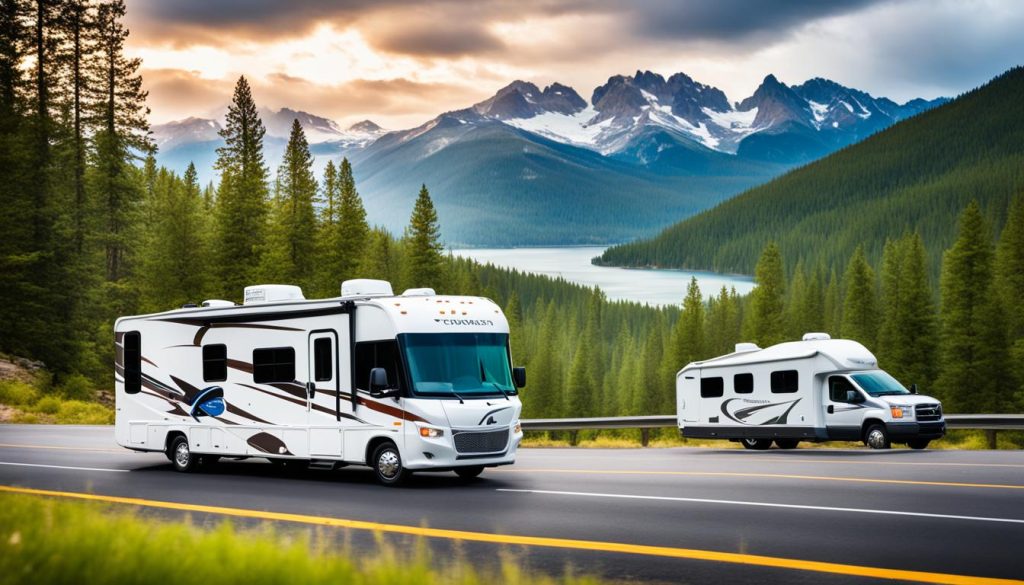
In essence, the appropriate RV rental insurance plan hinges on a thorough risk assessment and a clear understanding of your financial resilience. Whether embarking on a brief sojourn or preparing for a grand excursion, the goal remains the same: to ensure your travels are safeguarded with the right rental RV protection.
Picking the Top RV Rental Insurance Policies and Providers
Choosing the right RV rental insurance policy is crucial for peace of mind on the open road. Renters need to weigh their options carefully by comparing the offerings from prominent RV insurance companies. Ensuring that your chosen policy covers all necessary aspects of your RV adventure, while also aligning with your budget, is imperative.
Comparative Analysis of Renowned RV Insurance Companies
Several top-tier RV insurance companies have established themselves as reliable providers of comprehensive RV rental insurance. Below is a detailed comparison of three industry leaders: National General, Nationwide, and Progressive.
| Insurance Company | Types of Coverage | Policy Benefits | Average Premiums |
|---|---|---|---|
| National General | Comprehensive, Collision, Liability, Personal Effects | 24/7 Support, Customizable Plans, Safe Driver Discounts | Varies by RV class and renter’s profile |
| Nationwide | Comprehensive, Collision, Bodily Injury | Vanishing Deductibles, Multiple Policy Discounts | Depends on coverage level and duration |
| Progressive | Comprehensive, Collision, Uninsured Motorist | Rate Lock, Loyalty Rewards, Customizable Limits | Subject to RV type and policyholder’s history |
Reading Between the Lines: Policy Fine Print to Watch Out For
While assessing potential RV rental insurance providers, it’s critical to understand the fine print in RV rental policies. Attention to details regarding coverage exclusions, benefit restrictions, and the claims process can prevent unforeseen costs and delays when they are most inconvenient.
Always review the fine print of the RV rental policy to ensure you are fully aware of any exclusions, limitations on coverage, and specific requirements for claims filing to avoid any surprises down the line.
RV Rental Insurance: Aligning Coverage with Journey Duration
When planning an RV road trip, the journey duration significantly impacts the type of RV rental insurance you’ll need. It’s not just about having insurance, but having the right type and duration of coverage to match the length and scope of your adventure. Understanding the distinct requirements for different trip lengths can save travelers from unexpected costs and complications.

For those embarking on short weekend excursions, a basic camper insurance package might suffice. This temporary coverage is typically less costly and covers just the essentials. However, it’s vital to confirm that any short-term policy also provides adequate RV coverage in case of unforeseen events, even during a brief getaway.
In contrast, longer journeys, such as cross-country explorations that span weeks or months, demand more robust motorhome insurance solutions. These comprehensive policies are designed to offer protection throughout the extended period on the road, covering a range of scenarios that might occur far from home. Motorhome insurance duration is a critical factor, ensuring that travelers are protected from the start of their trip until the return of their RV to the rental agency.
Here’s a quick rundown of considerations based on trip length:
- Weekend Getaways: Basic liability and collision, convenient for short-term rentals.
- Week-long Vacations: Standard package with the addition of some comprehensive elements.
- Monthly Adventures: In-depth coverage including roadside assistance and additional liability.
- Seasonal Trips: Full-scale travel trailer insurance with extended coverage for multiple states or regions.
Renters should also be mindful of crossing state lines, as RV coverage requirements can differ with geography. A thorough review of the rental agreement and a consultation with the insurance provider can clarify these nuances. By precisely aligning insurance policies with the anticipated duration and breadth of the journey, RV renters can embark on their travels with confidence and peace of mind.
Why Seasoned RV Renters Invest in Robust Insurance Plans
Experience is the best teacher, and those who frequently rent recreational vehicles know that uncertainty comes with the territory. Seasoned adventurers often invest in more robust insurance plans, understanding that this foresight is far more than a cost—it’s a strategic move towards peace of mind. Whether it’s dealing with unforeseen damage while navigating tough terrain or facing legal fees due to accidents, having comprehensive RV rental insurance covers a multitude of potential issues that can otherwise turn a dream vacation into a financial nightmare.
Insightful renters realize that higher upfront insurance costs can actually lead to long-term savings, especially when considering deductibles and coverage limits. It’s not just about selecting insurance options; it’s about choosing a plan that suits the nature and duration of the trip.
“Investing in more inclusive insurance options can be compared to wearing a parachute when jumping out of a plane; you hope not to need it, but its presence is essential for a safe landing.”
But why do RV veterans prefer these comprehensive plans? A closer examination reveals a pattern of logic and a pyramid of priorities—security, savings, and serenity.
- Broader Coverage Areas: Accidents, theft, and natural disasters do not confine themselves to predictable patterns, and neither should insurance plans. A robust policy ensures protection across various states and conditions, crucial for those long, interstate ventures.
- Personal Property Protection: Valuables inside the RV require additional security. Premium insurance options often include clauses that cover personal property, preventing out-of-pocket expenses when losses occur.
- Liability Limits: Savvy renters know that adequate liability coverage is invaluable, guarding against claims that can skyrocket into the tens of thousands.
| Feature | Basic Insurance | Robust Insurance |
|---|---|---|
| Liability Coverage | State minimum | Up to $1,000,000 |
| Personal Property | Limited or none | Extensive |
| Road Assistance | Not usually included | Often included |
| Comprehensive Damage | Basic | Complete RV and attachment coverage |
Fiscal shrewdness is another pillar in the decision-making proclivities of seasoned renters. They seamlessly weigh the cost of insurance against potential loss, invariably favoring a fortified investment over a scanty one that might invite ruinous payouts in face of adversity. Their narrative is clear: comprehensive RV rental insurance isn’t a luxury; it’s an indispensable asset safeguarding those who seek adventure against the caprices of chance and happenstance.
Avoiding Rental Pitfalls: How Proper RV Rental Insurance Can Save Your Trip
Embarking on an RV adventure without the appropriate insurance is a gamble that can lead to unfortunate consequences. RV rental insurance is not merely a formality; it’s a crucial element that safeguards vacation investments and provides peace of mind. Adequate coverage helps renters handle unexpected events, from minor accidents to significant roadside emergencies, without incurring crippling financial losses. Given the complexities associated with operating a recreational vehicle, the importance of securing tailored insurance plans cannot be stressed enough.
Throughout the United States, RV enthusiasts have learned that one size does not fit all when it comes to rental insurance. The right policy accounts for the vehicle’s value, the trip’s duration, planned routes, and state-specific regulations. Additionally, proper insurance coverage encompasses protection beyond basic liability, including comprehensive options that defend against a spectrum of incidents such as theft, natural disasters, and roadside breakdowns. By covering these bases, renters can relish their journey with the assurance that they have a safety net in place.
Finally, investing time in understanding and choosing the appropriate insurance coverage correlates directly with the enjoyment and success of an RV trip. The most seasoned travelers recognize that robust insurance plans are not an expense but an investment in the continuity of their experiences on the open road. To sum up, proper RV rental insurance stands as the bulwark that allows renters to avoid pitfalls and embrace the freedom of the road, creating cherished memories without the shadow of financial risk looming overhead.

